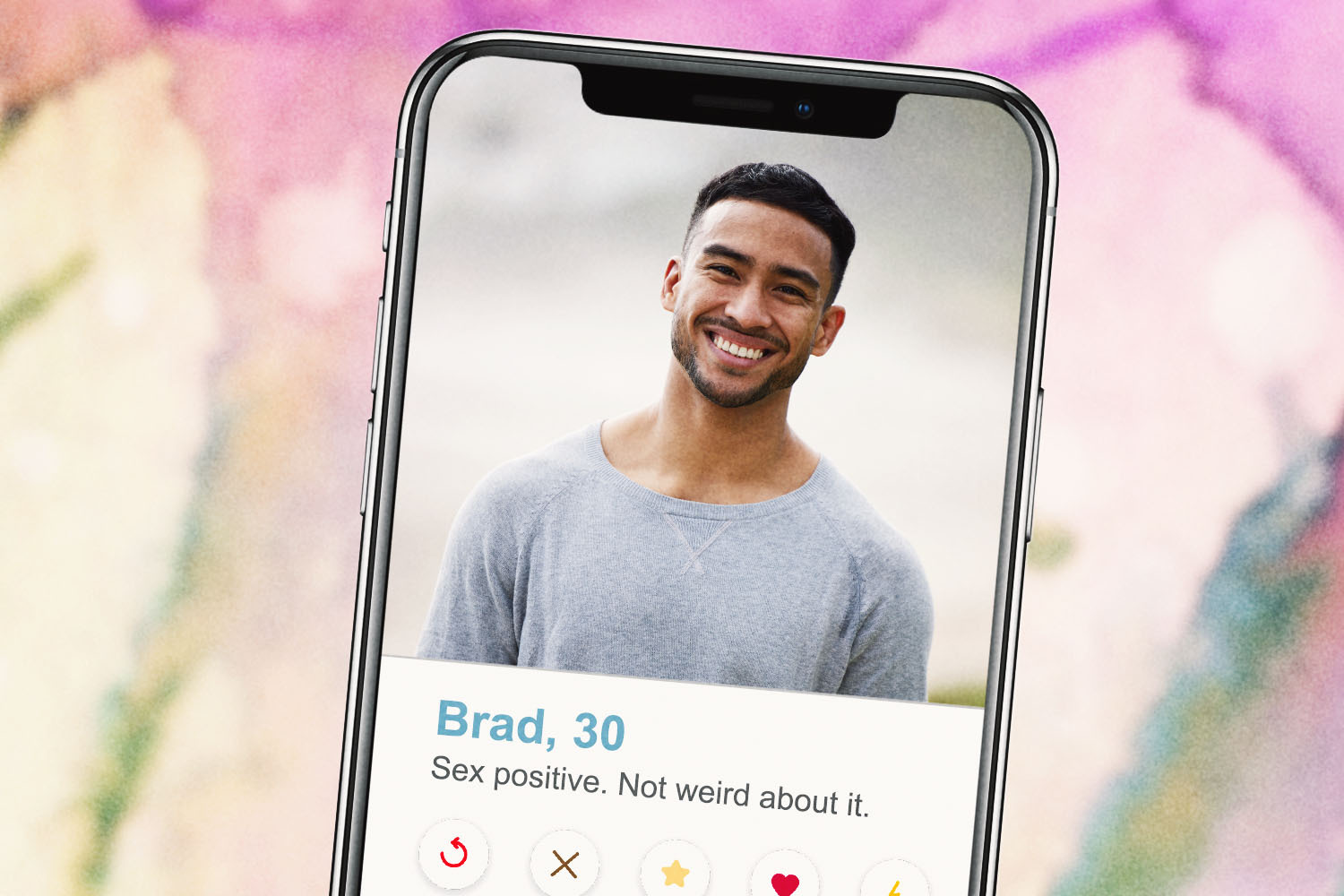As we’ve previously established, finding a third for a threesome with your partner is often easier said (and/or fantasized about) than done. So much so, in fact, that such a person (i.e. a usually bisexual, usually female or femme-presenting/identifying person who is willing to have sex with a usually straight couple) is sometimes referred to as a “unicorn” due to their rarity.
While comparing someone to a mythological creature renowned for its beauty and scarcity may seem like a compliment (and while some people do actively identify with the label), the term “unicorn” is often considered problematic as it objectifies an individual and reduces a living, breathing human being to a fantasy, specifically one whose sole purpose is to sate the needs and desires of a couple. Likewise, couples who seek such a fantasy — dubbed “unicorn hunters” — are being increasingly called out for their problematic approach to finding a third.
“Unicorn hunting is the term used for couples who are seeking a third for a threesome in ways that are unethical, objectifying or otherwise problematic,” says Stella Harris, author of The Ultimate Guide to Threesomes. “It plays off the term ‘unicorn,’ given to the mythical potential third who is imagined to be a young, attractive, bisexual woman who will join a couple, bring no needs of her own, be equally into both people and then will simply go away after the threesome.”
Obviously, says Harris, no such person exists. “So when someone is called a unicorn hunter, it’s implied that they’re expecting another person to fit this unrealistic mold.”
In seeking to force a real-life, non-mythical human being into this fantasy role, says Leanne Yau, creator of Poly Philia, many couples also end up “imposing strict, unreasonable and often contradictory demands that the third person is not allowed to question.” Such demands might include the expectation that a third is exclusive with the couple, or that a third only spends time with a couple when they are all together, while the couple continues spending time together one-on-one.
“Such dynamics often arise out of insecurity from the couple that someone will ‘threaten’ their relationship, so they set rigid parameters that do not allow for negotiation,” says Yau. All of this tends to subjugate, dehumanize and objectify the third person, none of which makes for a healthy, fair or fully consensual experience.
That said, couples — not all couples, but couples — are always going to want to have threesomes. Always have, always will. So what is a well-meaning couple who just happens to be seeking a third for a threesome to do?
The good news is, not all third-seeking is unicorn hunting. There is a way to find a third without treading into problematic, unicorn hunter territory. “There’s nothing wrong with being part of an established couple and wanting to have a threesome,” says Harris. “The trick is making sure you do so in an ethical way, that treats your potential third with respect.”
Mostly, as is usually true of all sex and also all human interactions all the time, this just involves treating your third like an actual person with wants, needs and desires of their own. But since that’s something we tend to struggle with as a society in general, here are some expert tips on finding a third without being the worst.
Make sure your third actually wants to be a third
The most glaring, unicorn-hunty faux pas that (usually straight) couples tend to make when seeking a third is bringing all sorts of problematic assumptions, usually informed by heteronormative stereotypes, with them.
For example, says Casey Tanner, Certified Sex Therapist and sexpert for LELO, “Don’t assume that every bisexual person likes threesomes [or] that all bi folks want to have sex with you and your partner.” In other words, just because your girlfriend’s friend is bi doesn’t mean she wants to have a threesome with you. (And, trust me, she’s heard all kinds of sleazy jokes and come ons about it from guys just like you, so save it.)
This (very problematic) assumption that all bisexual women are just dying to fall into bed with a couple is so widespread that it’s become extremely common for queer women on dating apps to specifically declare themselves non-unicorns in their profiles. This should go without saying, but if you see this, respect it. “It doesn’t matter if you think they’re hot,” says Harris. “If their profile says they’re not a unicorn, reaching out to them anyway is simply demonstrating your lack of respect and your lack of understanding of consent.”
There’s no prize for “converting” a proclaimed non-unicorn into your third, and attempting to do so will send you directly to unicorn hunter jail. Do not pass Go, do not collect $200.
Don’t be sneaky
Because a third is such a notoriously difficult thing to find, some couples will try to lure one in under false pretenses, i.e., they’ll have one partner make a connection with a potential third, then only much later divulge that they’re actually a couple seeking a threesome.
“This is manipulative, don’t do this,” says Tanner. As is always true of all sexual encounters, clear, upfront communication is key. Don’t pretend to be seeking something else and pull a bait and switch.
“When connecting with potential thirds, be transparent that you’re a couple and be clear about what you’re looking for,” says Tanner. “Be willing to listen and hear them out to construct a mutually beneficial agreement.”
Also, don’t pretend to be someone else! Brief confession: When my ex and I started having threesomes, he would approach women online and pretend to be me, because he thought women would respond better to another woman. He was probably right, but this was still a shitty, dishonest thing to do and I shouldn’t have let him do it. If you’re not being 100% honest with potential thirds about who you are and what you’re looking for, then you’re being shady. And if you feel you can’t be 100% honest with potential thirds about who you are and what you’re looking for, then it probably means that you and your partner have not done the necessary work to be ready to welcome another person into your sex life.
Understand what you want from a third, and communicate it clearly
Speaking of you and your partner being ready to welcome another person into your sex life, make sure that you are. Moreover, make sure you’re both clear on what you want, why you want it, and how a third person will fit into that framework.
“As a couple, you need to make sure you’re ready to have a threesome before you bring someone else into your bed,” says Harris. “That means that both of you are completely on board with the idea (rather than one person doing it to please the other). You need to make sure you’ve communicated your desires and fears with each other, and worked through any concerns — such as jealousy, or STI safety protocols.”
You also need to figure out what role you want this third person to play in your lives — because no matter how big or small that role is, the presence of a third person in your bedroom is going to change the dynamic of your relationship, says Tanner. Are you looking for someone to join you for a one-time fling, an ongoing but casual arrangement, or a full-fledged relationship? Figuring this out, and knowing you’re both on the same page, can shift the dynamic.
For example, says Yau, a couple seeking a casual, one-off threesome might be less likely to tread into problematic territory and impose unfair, restrictive demands on their third, given “the uncomplicated nature of a short-term dalliance.”
At the same time, however, couples seeking such a short-term dalliance may need to be extra careful to respect and acknowledge the reality and autonomy of their third, as it can be especially easy to view a third as a fantasy when they’re a one-time guest star.
“To do this, you need to treat your thirds or potential thirds as fully-formed human beings, with their own needs, wants and desires, rather than as your personal sex toy,” says Harris. This involves making sure you check in with your third before, during and after the encounter to make sure they’re having fun, their needs are being met and no boundaries are being crossed. It also means providing aftercare: offering them water, making sure they get home safely or offering them a place to spend the night, checking in the next day, etc.
Once again, it’s really just about treating a third partner the way you would (hopefully) treat any partner: like the living human being they are.
Set boundaries, not “rules”
Again, establishing and respecting boundaries — yours, your partner’s and a third’s — is crucial to a healthy, successful and consensual threesome. That said, there’s a difference between setting boundaries and imposing hard rules — specifically rules that only seem to apply to the third.
“When you’re fantasizing about and planning your potential threesome, consider what boundaries you’d like to have,” says Harris. “Some are absolutely necessary, like making sure everyone is on the same page about STI safety. But if you find yourself coming up with a list of ‘rules’ that apply only to the third, you’re getting into problematic territory.”
Imposing those regulations leans into a problematic hierarchical order that prioritizes the needs of the couple. “Watch for power imbalances,” says Tanner. “The third person — a person and not a mythical ‘unicorn’ — also has power and autonomy in the triad. The needs of the couple do not come first.”
Essentially, finding a third without being a unicorn hunter really just comes down to treating people like human beings worthy of respect, care and consideration. A third person who joins you and your partner in bed — in whatever capacity and to whatever extent they do — is a person, not a sex toy, and certainly not a mythical creature you’ve managed to capture for your pleasure and yours alone.
Whether you’re looking to get into shape, or just get out of a funk, The Charge has got you covered. Sign up for our new wellness newsletter today.


























